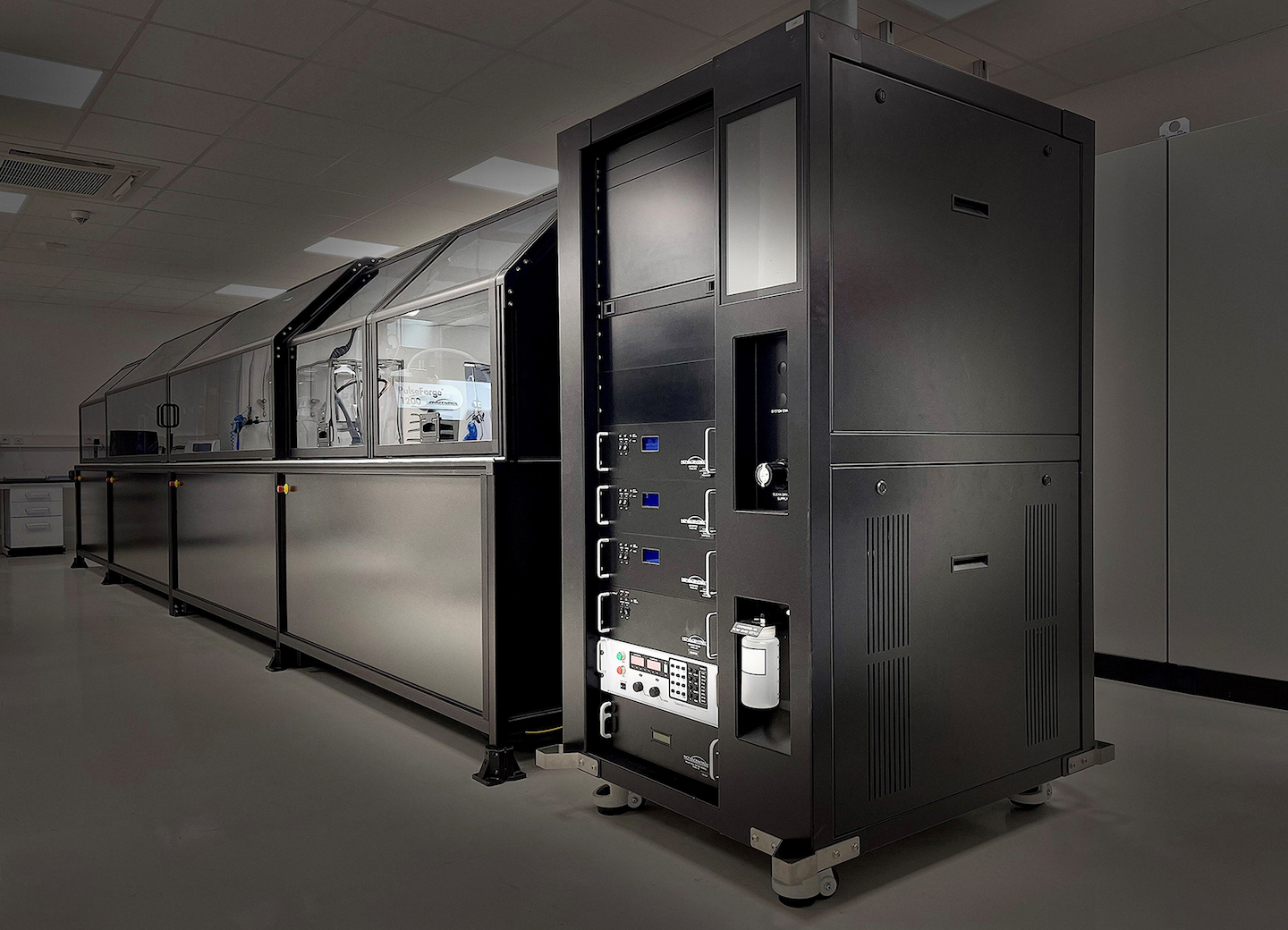Prototypes for applications and services of the future: from intelligent packaging with touch display and biosensor technology, printed electronics to futuristic car interiors
State-of-the-art technology and cooperation partners enable innovations: Collaboration with the Fraunhofer Institute as well as printing mould specialists Janoschka and Flex-Punkt.
Experts seek solutions for heating, light conduction, antenna pressure and sensor technology
The technology company Continental is bundling its competencies in the field of functional printing at its Freiburg location in a technology centre with state-of-the-art machinery. The centrepiece is a machine specially developed for functional printing. It enables the application of numerous printing processes and processes a wide variety of materials - from artificial leather to metal, from paper to rubber. To date, the company has invested around 2.5 million euros in its site in Baden-Württemberg.
In functional printing, different applications are produced by printing processes. Prototypes of intelligent products are created in the centre for functional printing technologies. By integrating functions and related services, they open up new potential and pave the way for technologies of the future. "They allow for predictive maintenance concepts all the way to automatic ordering processes for spare parts in Industry 4.0, but they are also the basis for new types of vehicle interiors," explains Dr Erhard Barho, who heads the functional surface solutions division at Continental.
All printing processes, materials and finishing techniques in one place
Printing and process specialists as well as experts in circuit design jointly develop and test processes in Freiburg to integrate these functions into products for the printing and packaging industry as well as for the automotive industry, for example. "We are concentrating all printing processes, all materials and all finishing techniques in one place," emphasises the centre's director, Armin Senne. "Until now, customers had to look for different partners for the individual tasks and coordinate them. We now offer everything from a single source in terms of the future of the printing industry."
"For us, the starting point for the development of new technical applications is customer benefit," says Barho. Renowned cooperation partners help with this: for example, the centre is located in the immediate vicinity of the Fraunhofer Institute. The long-standing cooperation with printing forme specialists such as Janoschka and Flex-Punkt is also being continued and expanded here. The focus is on topics related to the future of packaging, such as smart packaging with touch displays and biosensor technology. Food packaging that stores the time of first opening is also conceivable.
Sensors for predictive maintenance concepts
The specialists, engineers and software developers in Freiburg are looking for new solutions and applications, especially in the fields of heating, antenna pressure and pressure and temperature sensors. Another example is the topic of "light conduction", which already plays an important role in many areas. In the future, optics in the micrometre range could produce holograms that indicate with certainty whether a product is an original or a copy. Examples of predictive maintenance concepts in Industry 4.0 are strain sensors embedded in conveyor belts that detect a necessary replacement at an early stage, sensors and antennas in hoses that measure internal abrasion, and sensor air springs that indicate pressure. In addition, Group-internal start-ups use the pressure centre for technology and product development.
In cars, there are already more and more sensors and antennas that receive and process signals. "This trend will continue," Barho is convinced. The goal of his team, he says, is to bundle the sensors and read them together. In this way, wiring harnesses in the car could be replaced by electrically conductive pastes as conductor paths on the surfaces. That would save a lot of weight.
Applications are even conceivable for end-customer products. For example, by applying a voltage to a window film, a change between light and dark or transparent and opaque can be achieved. Likewise, it is possible to integrate a heating function into a decorative film with the appearance of a wooden panel. In both cases, the film is printed with a conductive and spreadable polymer mixture. The printed heating solutions provide the heat within a few seconds without any lead time.
The proximity of the functional printing centre to Continental's Herbolzheim site also promotes close cooperation with the surface specialists based there. For example, a heated backrest in the rear-facing lounge seat will be used in their planned new concept car. "We sit like a spider in a web at the centre of all activities," Barho sums up the function of the print centre. "Through our network we bring the right people together and act like an in-house incubator. In this way we create an unprecedented space of opportunity for our customers, where we can work closely with them on new concepts and future topics."
www.continental-corporation.com
